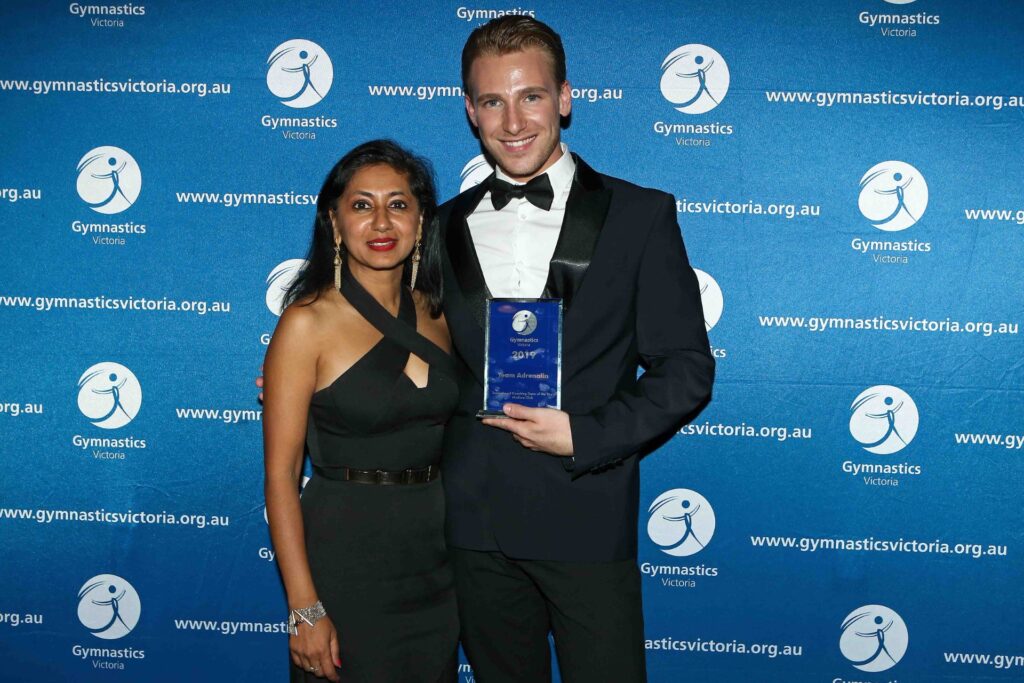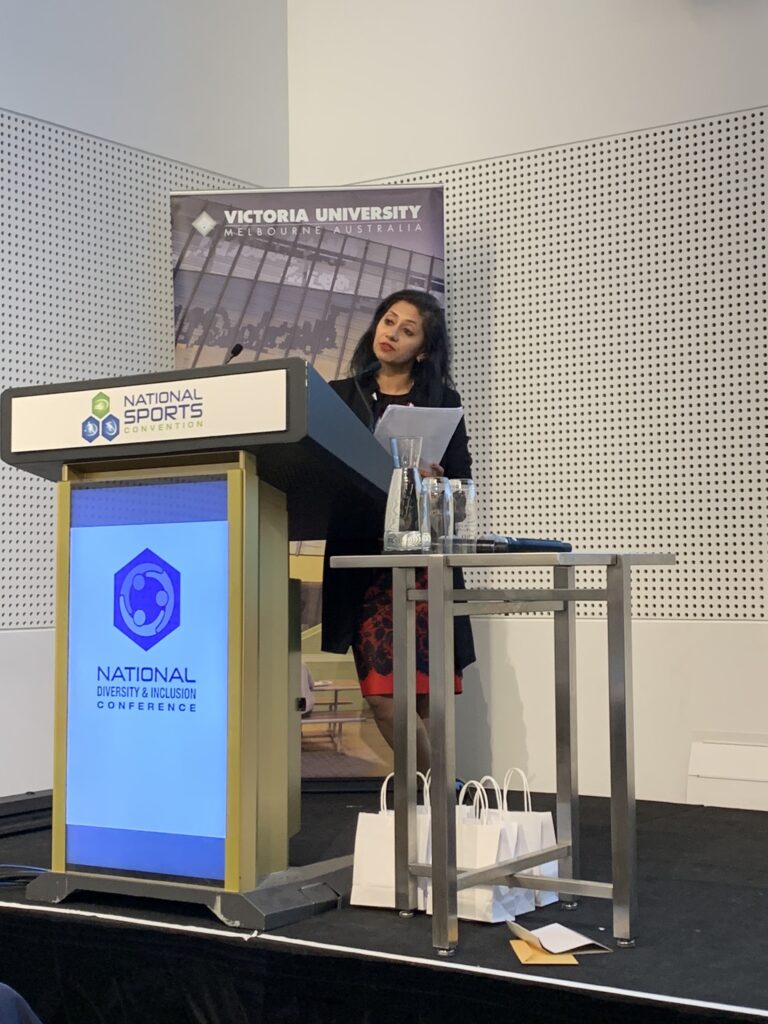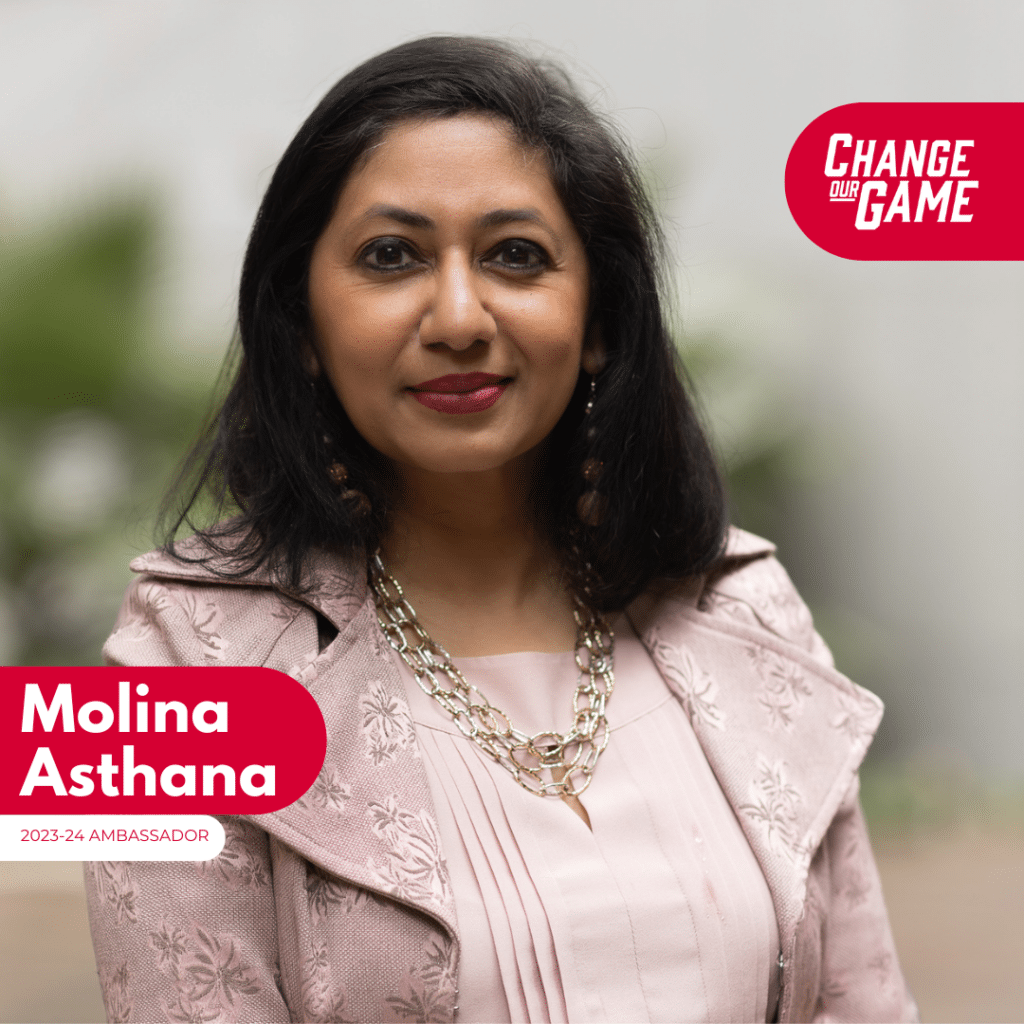Growing up in India, Molina Asthana didn’t have the opportunity to participate in sport. It wasn’t until later in life, when she moved to Australia, that she got involved in sporting culture and began using exercise to support her personal wellbeing.
“Mostly women in India are not really encouraged to participate in sport,” Asthana tells Women’s Agenda, noting that those from higher socioeconomic backgrounds were also encouraged to focus on academics to enter a career such as a doctor, lawyer or engineer.
It was in 2004 that Asthana made the move to Australia and took up running by joining a group of like-minded people.
“I really appreciated the sporting culture here with people running, walking, cycling– all the organised sport around me,” she says. “So I started running and joined a running group, and I was really encouraged by the people I ran with to run longer distances and have now done a few half marathons.”
“Sport really increased my confidence. It’s given me the strength of mind and body. It has helped me overcome stressful situations, and generally helped me get accustomed to the civilian way of life and workforce.”

For other migrant women and women from multicultural backgrounds, like herself, Asthana says these are only a few of the myriad of benefits that participating in sport can provide for them.
Along with boosting confidence and self-esteem, joining a sporting group can help these women “overcome issues of isolation and depression in a new country”, says Asthana, adding that the positive peer support can also challenge gender norms and aid certain women to feel a “spirit of camaraderie” and gather the strength it takes to come out of abusive relationships.
Despite all of the advantages Asthana got from participating in running groups and distance races, however, she still wasn’t seeing many women resembling herself– those from multicultural backgrounds, participating in sport.
That’s when she decided to help drive change and establish a non-profit organisation called ‘Multicultural Women in Sport’, which aims to increase participation of women from multicultural backgrounds in sport for empowerment, general wellbeing and sense of belonging to the community.

In addition to this, Asthana is also a lawyer, the current Chair of Gymnastics Victoria and serves on numerous other boards and advisory committees, including Table Tennis Victoria, AFL South East Commission and the Australian Sports Commission.



For these extraordinary advocacy efforts, she was selected by the Office for Women in Sport and Recreation to become an ambassador for the Change Our Game movement this year, and stands alongside seven other inspiring women who are raising awareness on key issues in women’s sport.
“It’s really exciting,” Asthana says about becoming a Change Our Game ambassador. “It’s great to get this additional platform for advocacy and creating awareness. The spotlight really helps in spreading the word and creating opportunities for us beyond our circles because it is such a huge network.”

While each of the ambassadors brings a diverse perspective to the movement, Asthana is using her lived experience to champion women of colour as she says they face a “double glazed ceiling” when trying to enter leadership positions, including in the sporting industry.
When describing the double glazed ceiling, Asthana says that, in addition to the barriers women already face, women of colour have a number of layers added onto these barriers.
“We have to work much harder to achieve anything,” she says about women of colour. “We are often overlooked for leadership positions. When we aspire for something we are told that we are spreading ourselves too thin, whereas if an Anglo person did the same thing, they would be called an achiever.”
While Asthana is optimistic that these things can change, she wants to see things progress much quicker than they are right now, noting “there’s still a lot that needs to be done”.
“The social, health and wellbeing aspects [of sport] become particularly important for women of migrant backgrounds due to their own existing issues of isolation, depression, lack of support and opportunities. So all the other issues get exacerbated,” says Asthana.
“We need to ensure them safe spaces so they can participate in sport and overcome these issues.”
Change Our Game Ambassadors are using their platforms to help drive change and raise awareness on key issues and barriers for women in sport. Change Our Game is led by the Office for Women in Sport and Recreation to level the playing field for women and girls. Be sure to follow the Ambassadors’ journeys through @ChangeOurGame on socials.

